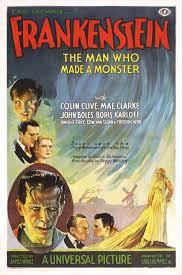The Enduring Legacy of Frankenstein in Popular Culture

Introduction
Frankenstein, a novel written by Mary Shelley and published in 1818, is not only a cornerstone of Gothic literature but also a profound commentary on the human condition, science, and morality. Its themes remain relevant today, as they provoke discussions about ethics in science and technology. As we navigate the complexities of modern advancements, the legacy of Frankenstein continues to influence various facets of contemporary culture.
The Story of Frankenstein
The narrative follows Victor Frankenstein, a scientist who creates a creature through unorthodox scientific experimentation. Initially, the being seeks companionship but quickly becomes an emblem of isolation and despair, reflecting themes of neglect and societal rejection. The character of Frankenstein’s creature has evolved into a symbol of the consequences of unchecked ambition and the ethical dilemmas surrounding creation and responsibility.
Modern Interpretations and Adaptations
Over the centuries, the story of Frankenstein has inspired countless adaptations in literature, film, and theatre, influencing genres from horror to science fiction. Notable adaptations include the 1931 film directed by James Whale, which set the standard for subsequent portrayals of the creature, and more recent interpretations such as the 2011 stage play by Danny Boyle. These adaptations often reinterpret the themes of the original story, exploring elements of humanity, monstrosity, and existential dread.
Frankenstein in Contemporary Discussions
The relevance of Frankenstein extends beyond entertainment; it invites critical discussions in fields such as bioethics and artificial intelligence. With advancements like CRISPR gene editing and AI technology, society faces questions reminiscent of those raised in Shelley’s work: What responsibilities do we have towards our creations? How far can one go in the pursuit of knowledge? Are we creating new ‘monsters’ through our innovations?
Conclusion
Mary Shelley’s Frankenstein remains a vital topic in cultural discourse, reflecting humanity’s ongoing struggle with the consequences of innovation. As we advance into an age defined by rapid technological development, the questions raised by Frankenstein remain pertinent. Understanding its legacy can guide us in navigating the moral complexities of our time, serving as a cautionary tale about the consequences of unfettered scientific exploration. In the end, Frankenstein is more than just a tale of gothic horror; it is a reminder of the delicate balance between creation and responsibility.









